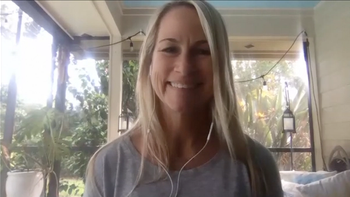
The founder of First Coast Integrative Medicine spoke on a 6-week virtual program that introduced IM modalities, including guided journaling, nutrition, and yoga. [WATCH TIME: 3 minutes]

The founder of First Coast Integrative Medicine spoke on a 6-week virtual program that introduced IM modalities, including guided journaling, nutrition, and yoga. [WATCH TIME: 3 minutes]

The director of the VA Southwest Parkinson’s Disease Research, Education, and Clinical Centers spoke to the importance of utilizing palliative care principles in the regular care of Parkinson disease. [WATCH TIME: 7 minutes]
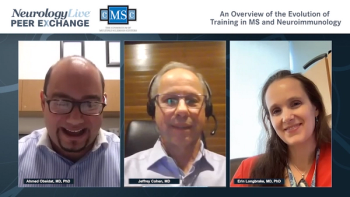
Ahmed Obeidat, MD, PhD; Jeffrey Cohen, MD; and Erin Longbrake, MD, PhD discuss the evolution of fellowship training for multiple sclerosis specialists.
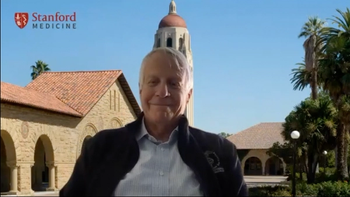
Discussing this year’s virtual ECTRIMS conference, the Zimmermann Professor of Neurology and Neurological Sciences, and Pediatrics at Stanford University provided his opinion on recent developments in the MS field. [WATCH TIME: 3 minutes]

The professor of neurology at the NYU Grossman School of Medicine provided context on the preliminary data evaluating antibody response in ocrelizumab-treated patients post-vaccine. [WATCH TIME: 5 mintues]

The Zimmermann Professor of Neurology and Neurological Sciences, and Pediatrics at Stanford University discussed the treatment’s potential in the multiple sclerosis space, where there are other competing drugs with similar safety profiles. [WATCH TIME: 4 minutes]
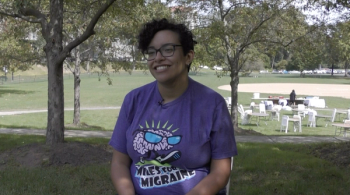
The headache specialist at Jefferson Headache Center discussed the need to revamp the education process for migraine care and how much time residents spend learning about the disease. [WATCH TIME: 2 minutes]
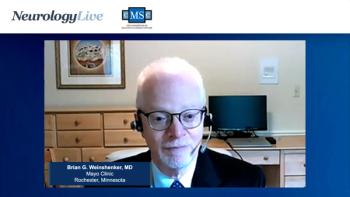
Dr Brian G. Weinshenker envisions the future management of neuromyelitis optica spectrum disorders based on his involvement in research programs and treatment advances occurring in neurology.
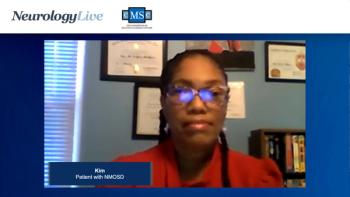
Patients with neuromyelitis optica spectrum disorders highlight the types of resources and support that have helped them manage their neurological condition.
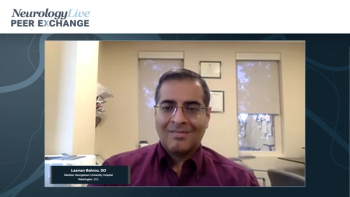
Physicians explain expected versus unexpected OFF episodes and the use of symptom diaries in managing Parkinson’s disease.
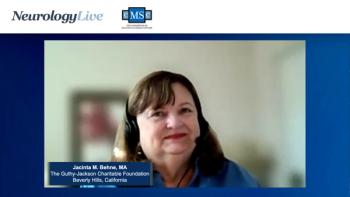
Jacinta M. Behne, MA, of the Guthy-Jackson Charitable Foundation, reacts to the types of research programs the organization has been involved in, regarding better treatments for patients with neuromyelitis optica spectrum disorders.
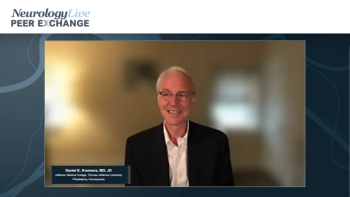
Key opinion leaders provide insight on how OFF episodes affect patients’ quality of life.
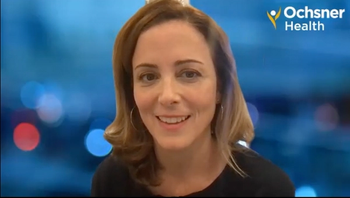
After showing potential remyelination effects, the director of the Multiple Sclerosis Center at Ochsner Health offered her perspective on the latest data for ATA188 in progressive MS. [WATCH TIME: 4 minutes]

The professor of neurology at the NYU Grossman School of Medicine discussed the trial design of VIOLA, a new prospective study evaluating responses to COVID-19 vaccines in patients with MS on ocrelizumab (Ocrevus; Genentech). [WATCH TIME: 3 minutes]
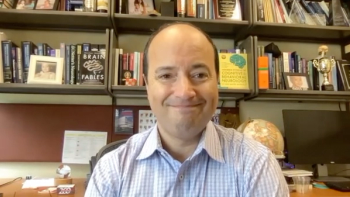
In light of the RISE-PD study data, the research chair for Parkinson’s Disease and Movement Disorders at University of Cincinnati Health offered insight into IPX-203 in Parkinson disease. [WATCH TIME: 3 minutes]
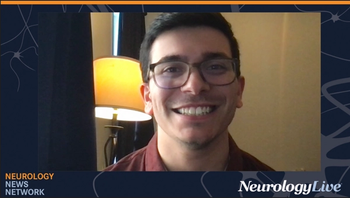
Neurology News Network for the week ending October 15, 2021. [WATCH TIME: 3 minutes]

The Zimmermann Professor of Neurology and Neurological Sciences, and Pediatrics at Stanford University spoke on the safety and efficacy of ublituximab in treating patients with relapsing forms of multiple sclerosis. [WATCH TIME: 4 minutes]

The director of the Multiple Sclerosis Center at Ochsner Health discussed the open-label extension data presented at ECTRIMS Congress on ATA188 in progressive MS. [WATCH TIME: 4 minutes]

The director of the Mellen Center for MS Treatment and Research at Cleveland Clinic provided context on whether efficacy outcomes should be weighed more than mechanistic action when evaluating MSC-NTF cell therapies. [WATCH TIME: 3 minutes]

The headache specialist at Jefferson Headache Center discussed the array of issues patients with migraine face and why her personal experience may resonate with patients. [WATCH TIME: 3 minutes]
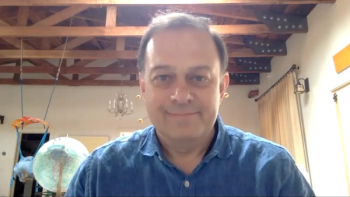
The clinical research director of the USCF Multiple Sclerosis Center discussed the importance of improving knowledge and education for patients with NMOSD, as well as strategies to do so. [WATCH TIME: 3 minutes]

The director of the Mellen Center for MS Treatment and Research at Cleveland Clinic discussed the use of MSC-NTF cells in progressive MS and the data backing this approach. [WATCH TIME: 3 minutes]

The research chair for Parkinson’s Disease and Movement Disorders at University of Cincinnati Health discussed the therapy’s results in a study of its effect on Parkinson disease. [WATCH TIME: 6 minutes]

Discussing the 3 FDA-approved treatments for NMOSD, the clinical research director of the UCSF Multiple Sclerosis Center commented on the positive impact, as well as resultant barriers to care. [WATCH TIME: 4 minutes]

The neurologist at Wayne State University provided background on why there needs to be a continued focus on including and studying African American patients with NMOSD in trials. [WATCH TIME 3 minutes]
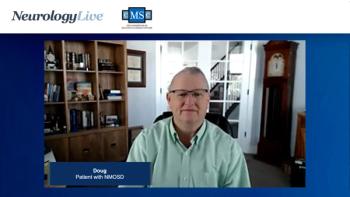
Neuromyelitis optica patient Doug highlights the types of treatments he has received since his diagnosis and provides suggestions to patients on navigating therapy, especially during the COVID-19 pandemic.
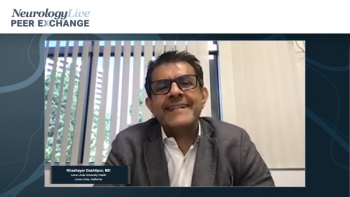
Expert neurologists discuss why OFF episodes happen and how soon they occur after starting levodopa.

Kim, a patient with neuromyelitis optica, describes what it has been like receiving rituximab infusions as preventive therapy, and shares advice for others who are about to embark on a similar treatment journey.
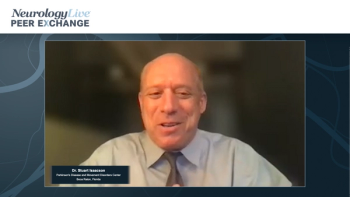
Panelists have a conversation on the definition of OFF episodes in relation to Parkinson’s disease and how common OFF episodes are for patients.

The clinical research director of the UCSF Multiple Sclerosis Center provided an overview on the state of care for NMOSD, specifically the development of inebilizumab, satralizumab, and eculizumab. [WATCH TIME: 6 minutes]